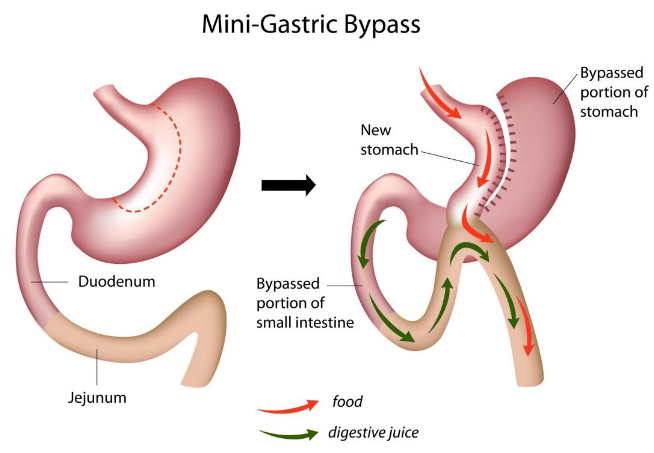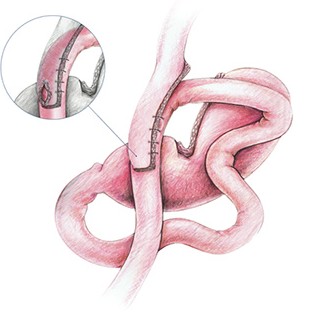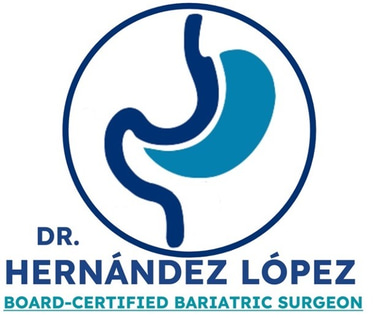Mini Gastric Bypass
Mini Gastric Bypass
The Mini Gastric Bypass is a surgical procedure that promotes weight loss through two key mechanisms:
Restriction: By reducing the stomach size to approximately 100 mL, it limits food intake and induces early satiety.
Malabsorption: A "bypass" is created to reroute part of the small intestine, reducing nutrient absorption.
Benefits and Expected Outcomes
Significant Weight Loss: This procedure has a high success rate, allowing patients to lose 70-80% of their excess weight.
Metabolic Benefits: Hormonal changes improve insulin sensitivity, making it particularly beneficial for patients with type 2 diabetes.
Considerations and Potential Risks
Lifelong Supplementation: Due to the malabsorption component, patients must take vitamins and minerals for life to prevent nutritional deficiencies.
Bile Reflux Risk: This procedure is not recommended for patients with severe pre-existing gastroesophageal reflux disease (GERD), as it may worsen symptoms.
Postoperative Complications
Gastrointestinal Leaks: In case of a leak, surgical revision is required, either converting to a Roux-en-Y Gastric Bypass or reversing the procedure entirely. Unlike the Roux-en-Y Bypass, where some complications can be managed medically or endoscopically, the Mini Gastric Bypass typically requires surgical intervention.
The Importance of an Experienced Surgical Team
While the Mini Gastric Bypass is technically simpler to perform, its postoperative management is complex and requires expertise. Selecting a highly skilled surgeon with experience in multiple bariatric techniques is essential to minimize complications.
Final Considerations
The Mini Gastric Bypass is an excellent option for weight loss in carefully selected patients. However, the decision must be individualized, with a clear discussion of its benefits, risks, and potential long-term implications. Comprehensive follow-up with a multidisciplinary team is crucial to ensuring long-term success.




